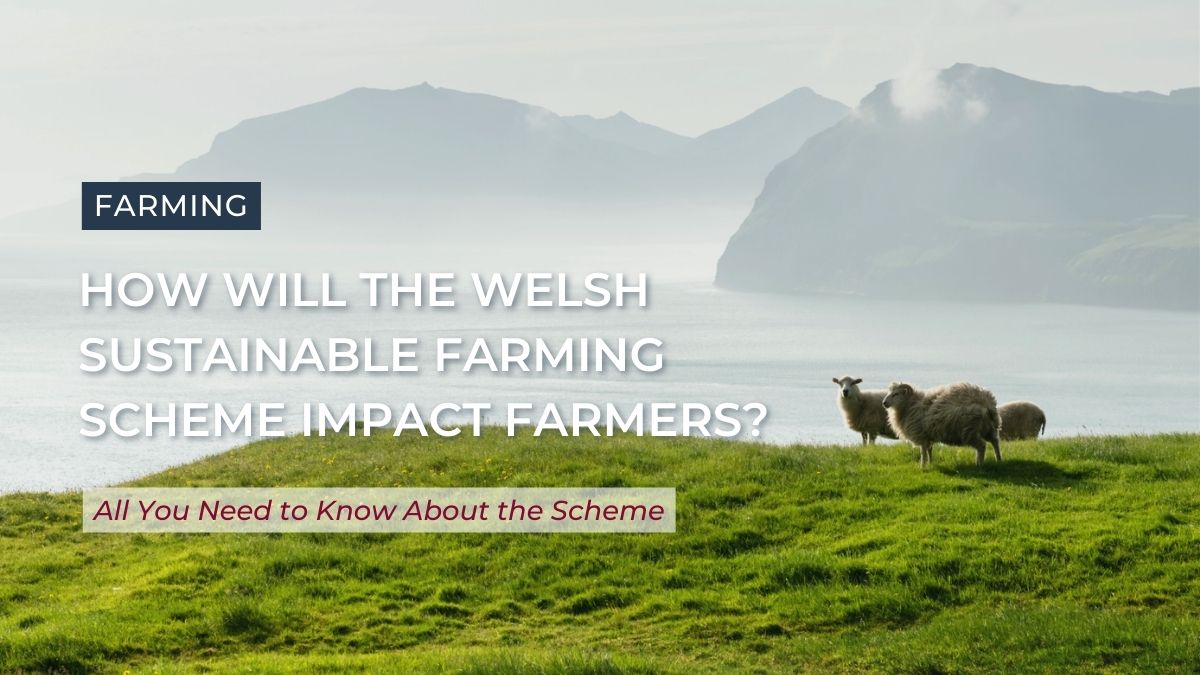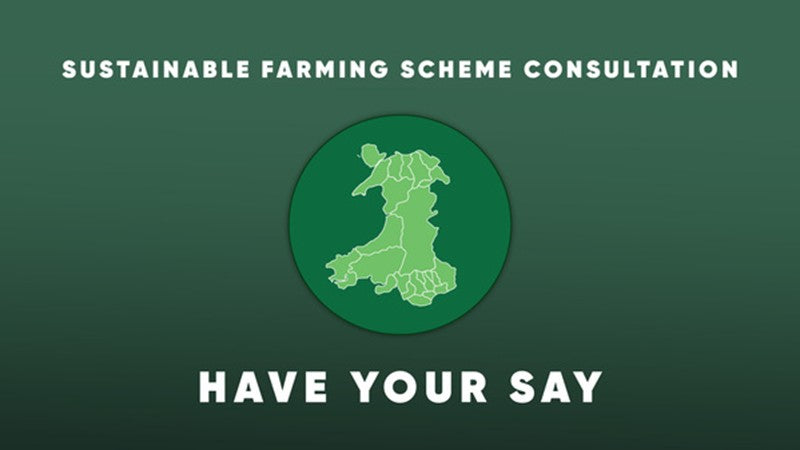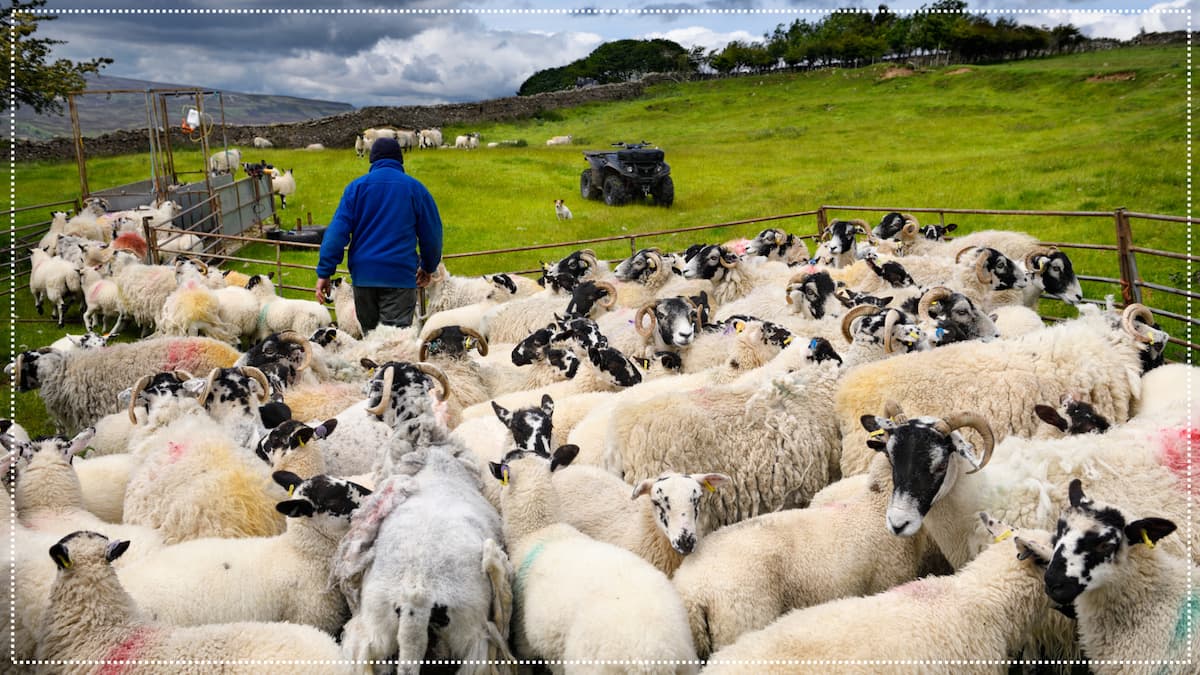
All You Need to Know About the Welsh Government's Sustainable Farming Scheme
It's a beautiful day, and you're driving through the countryside: passing fields that stretch as far as the eye can see, pointing out the animals to the kids, and maybe stopping for a hike or ramble through the hills.
No question about it, the sight can be truly breathtaking.
Yet, behind those stunning landscapes is a tale of grit, perseverance, and, sadly now, a cloud of doubt. At this very moment, farmers across the UK are wrestling with decisions being made that could fundamentally alter our rural way of life.
You may have heard recently about the Welsh Government's Sustainable Farming Scheme (SFS), which is its post-Brexit plan for funding the industry from 2025 onwards. At first glance, you might think it's a great move to embrace eco-friendly practices and do our bit for Mother Earth. But, peel back the layers and you'll find a scary reality for farms in Wales.
Now, you might be thinking, "Why should I care? I'm not a farmer." And fair enough. However, consider this - the decisions made by policymakers aren't confined by the farm gate, they impact the lives of folks from all walks of life. From the food on our table to the air we breathe, we're all implicated in the fate of the countryside.
That's why it's so important for us to have conversations and to shine a light on the challenges faced by our farmers. It's not just about politics and mandates, it's about people. We're all in this together, and we all benefit from farming, whether we recognise it or not.
So, in this blog post, we're aiming to light a spark of awareness and hope for our farmers in Wales. Because when we come together, when we listen and learn from each other, that's when real change can happen.
What is the Sustainable Farming Scheme?
To start off, let's just recap exactly what the SFS is.
The Welsh Government's proposed Sustainable Farming Scheme was developed to replace the previous EU Common Agricultural Policy (CAP) system of support, as a result of Brexit.
Under the SFS framework, Welsh farmers will be tasked with executing a range of 'Universal Actions', qualifying them for the 'Universal Baseline Payment'. Additionally, they have the opportunity to undertake 'Optional' and 'Collaborative' actions, offering further financial incentives.
Some of the scheme rules include:
- At least 10% of farmland is managed as semi-natural habitat.
- At least 10% under tree cover as woodland or individual trees.
It is scheduled to be implemented in January 2025, and if you'd like to read about it in full, you can check it out in full on the Welsh Government's website.
Now perhaps you're wondering, what's all the fuss about? Well, here's where things get tricky.

Why is The SFS Causing Such a Stir?
For starters, this mandate isn't just about planting trees; it's about making room for them - room that comes at the expense of agricultural land. For those farmers depending on that land to nourish their livestock and keep their operations afloat, this proposition is no easy morsel to swallow.
It's also about the logistics and day-to-day reality of this scheme for farmers, who have raised concerns about the costs and practicalities of implementing the current proposal.
Furthermore, there are ongoing issues with the Welsh Government's efforts to tackle bovine TB - the results of which can be seen in this eye-opening YouTube video from Gareth Wyn Jones, a Welsh farmer who we caught up with on a call recently.
The Impacts of the SFS on Welsh Farmers
Gareth and other farmers in Wales are stressing that this scheme could wreak havoc on their livelihoods, mess up supply chains, and even impact rural Wales in a big way.
Some of the key issues raised are:
- Economic: According to NFU Cymru, the figures are looking bleak if this proposal is implemented. 5,500 jobs lost, a £200m hit to farm business income, and 11% less livestock in Wales - and that's without considering the knock-on effect down the supply chain.
- Environmental: Of course, tree planting has undeniable environmental benefits, but farmers are worried about the potential trade-offs. Converting agricultural land to woodland can disrupt existing ecosystems, reduce biodiversity, and limit opportunities for sustainable food production.
- Logistics: Planting and maintaining trees requires a significant investment of both time and money. Farmers are, quite rightly, stressed out about the cost and overwhelming amount of paperwork that comes with sticking to this mandate, especially if they're barely scraping by as it is.
- Ripple Effect: When farmers are forced to downsize their operations or pivot their practices, it sends shockwaves through the entire food chain. And before you know it, those changes start showing up on your dinner table - in the form of higher prices, limited choices, or even shortages.
It's clear that the SFS proposed by the Welsh government isn't just a matter for farmers to grapple with - it's a concern that impacts us all.
How Have Welsh Farmers Reacted So Far?
We've mentioned Gareth Wyn Jones in this post, and you may have heard the name yourself, particularly in recent months. He is a farmer, storyteller, and a voice for the land, with a substantial following on social media.
Alongside Gareth's YouTube and TikTok videos to raise awareness, plenty is being done by himself and other farmers in Wales. This includes an "Enough is Enough" campaign that sees scheduled protests made across the country to make the voices of farmers heard and listened to. A Facebook group, Welsh farmers’ protests, has been a key player in these protests, with more than 14,000 members to date.
When it comes to standing up for what they believe in, Welsh farmers aren't afraid to ruffle a few feathers. Because for them, the stakes are too high to stay silent.
What Are the Next Steps Involved?
There's no one-size-fits-all solution to the complex issues facing our farming communities, but it is clear that listening to Welsh farmers - the people at the heart of the scheme - is the first step in understanding the true impacts of what the Government is proposing.
The Welsh Government did issue a written statement about farming in Wales that was published on 27 February 2024, and it makes for an interesting read about the next steps involved. A glimmer of hope is that the incoming First Minister will review the SFS and it may be the fresh eyes that the Welsh farmers need to get their break.
How Can You Help Our Farmers?
Everyday folks like us have plenty we can do to back our hardworking farmers and lend a hand in their struggle for the SFS reevaluation. Whether it's buying local, advocating for policy change, or simply sharing stories and spreading awareness, every action counts.
In some of our previous blog posts, we've talked about ways you can help back British farmers, and these are now more important than ever. Please take a look and see if there is anything you can implement - big or small.
Summary
So, where do we go from here?
Well, for us, it's becoming more and more apparent that we can't take our food and our farmers for granted. We need to listen to their stories, understand their struggles, and support their efforts to build a more sustainable future that makes sense for all.
If you'd like to learn more about the Sustainable Farming Scheme, we recommend reading this insightful article from Senedd Research, or connecting with Gareth Wyn Jones over on his YouTube channel, to see first-hand the stark realities of what this proposal means for our farmers
The future of farming isn't just a farmer's concern - it's everyone's concern. So, please get involved and help support the rural way of life in whatever way you can.
What are your thoughts on the Sustainable Farming Scheme and its potential impact? We'd love to hear from you - leave your comments below!
About the Author
Robert Coates is no stranger to the world of farming clothes! Residing on his family farm in the heart of the Cheshire countryside, he understands the importance of durable, practical garments for those who work the land. Whether he's discussing the latest innovations in waterproofing or sharing tips for selecting the best wellies, Robert's expertise is built upon his daily interactions with the challenges and rewards of agricultural life.










